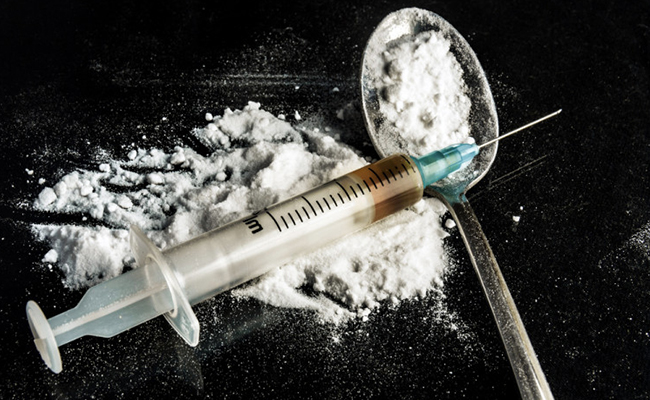Heroin Addiction – Heroin is recognised as one of the most addictive drugs on the planet, but establishing whether a loved one or someone close to you is using the substance is not so easy to recognise. This fact is further compounded if illegal drugs of any kind are alien to you.
But, there are ways and means that will go a long way to either allaying your fears or confirming the worst.
The first thing a person with limited knowledge of heroin should do is:
Get a basic understanding of the drug:
Spending time on the internet will provide you with as much information as required. Try not to take too much detail on-board initially. Understand the basics and dip back in as and when needed.
Three quick things to keep an eye on:
Is the person you are worried about becoming increasingly insular and gradually withdrawing from regular friends and family members?
Are they spending increasing amounts of time alone in their bedroom or den?
Are new, ‘friends’ turning up at strange hours of the day/night?
It is extremely important not to jump to any conclusions on these points. There could be many reasons for this behaviour and you need to be sensitive regarding their private lives, but noting the above could place an important piece in the puzzle at a later date.
Recognising heroin:
The drug is a powder-like, crumbly substance. While it is often an off-white colour this can vary and can be white, dark brown or black. If you find traces of a black, sticky substance this could be black tar heroin, so called because of its appearance and texture.
Heroin Addiction paraphernalia:
Those who use heroin need the ‘tools of the trade’ to administer it. Heroin can be injected, snorted or smoked. Some things you should keep watch for are:
- Needles
- Syringes
- Pipes
- Spoons (used to heat the drug)
- An excessive amount of lighters
- Rubber tubing or elastic bands may also be found. These are used as tourniquets to widen veins damaged by regular heroin use
Heroin addiction – Physical symptoms:
These signs should be quite noticeable, particularly if the drug is being injected because physical changes are almost instantaneous. This is due to the user experiencing an immediate drug-induced euphoria that occurs within seconds of heroin injection.
Smoking or snorting heroin does not produce such a rapid reaction but signs of being ‘high’ will show themselves once the drug reaches their brain.
Common symptoms of heroin use include:
- A dry mouth – users will often run their tongue across their lips
- Their appearance will be flushed
- Pupils are noticeably constricted
- They fall asleep extremely suddenly
- Breathing slows
- Self-control is often difficult to maintain
- They will constantly itch or scratch
- Feelings or complaints of nausea
- Physical vomitting
- Complaints of being constipated
Other obvious signs when someone is high on heroin include confused thinking and being disoriented. They often have difficulty making straightforward decisions and suffer from memory loss.
Heroin Addiction – Take one step back before tackling the situation:
If you feel your fears are founded it is important not to jump in feet first and accuse the person in a loud and aggressive manner. This approach is likely to be met with stubborn resistance and you being told in no uncertain terms to leave them alone, alternatively they will simply clamp up and refuse to discuss anything.
The sensible approach is to arrange an appointment with a qualified drugs counsellor or specialist to explain the situation. Once the relevant information has been assessed a plan can be put together regarding the most effective approach. This should include you offering full support and help in return for the user promising to seek treatment.
Such a situation will undoubtedly cause personal anguish, but try to bear in mind that your vigilance and concern has already had a positive impact. Continued support may make all the difference between a person sinking deeper into a devastating addiction or accepting and committing to rehabilitation treatment.
CLICK HERE to get a Free Confidential Rehabilitation Assessment.
Latest posts by Darren Lockie (see all)
- Cocaine burnout - February 25, 2020
- What is pathological lying? - February 21, 2020
- Ireland’s growing drug problem - January 20, 2020
+66 8 7140 7788









